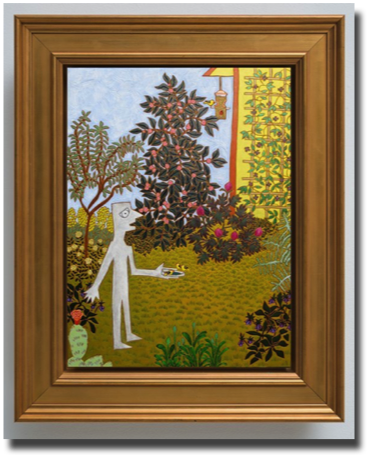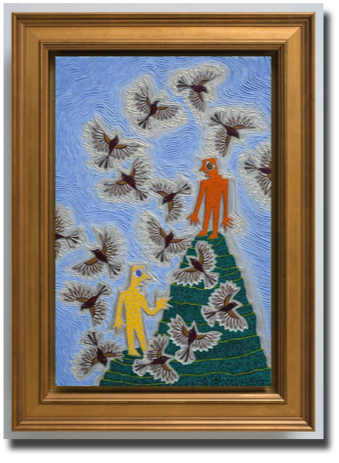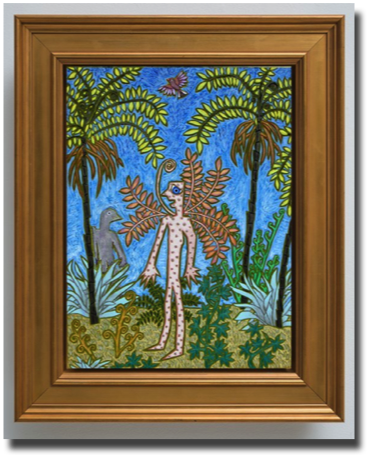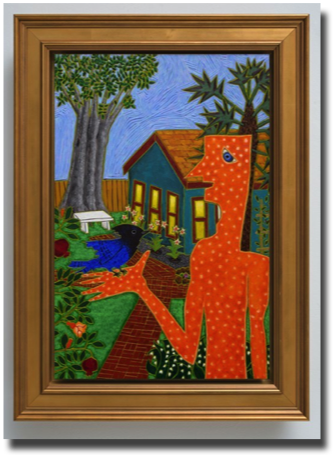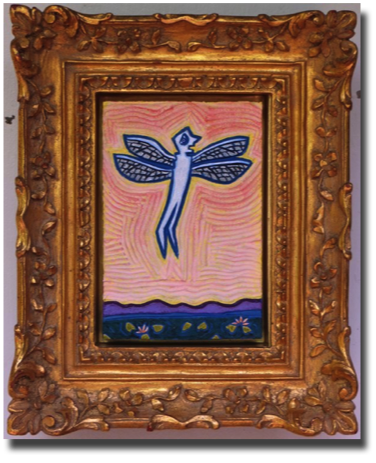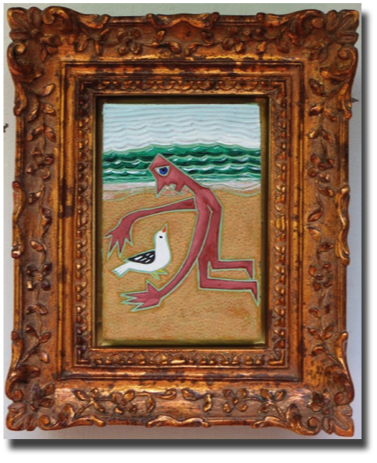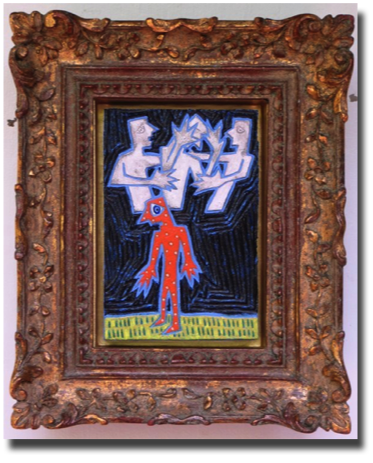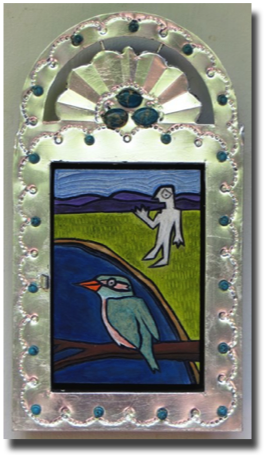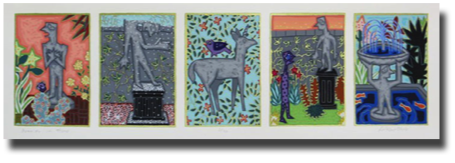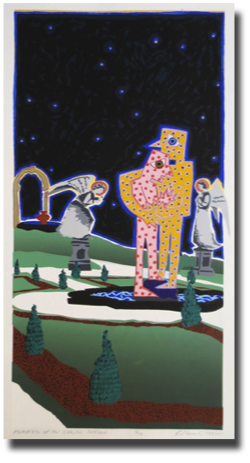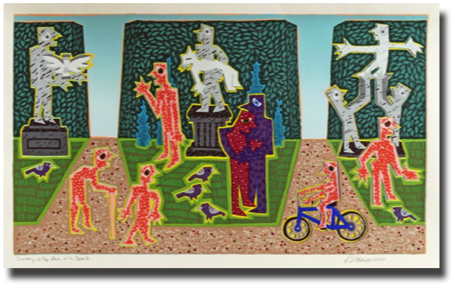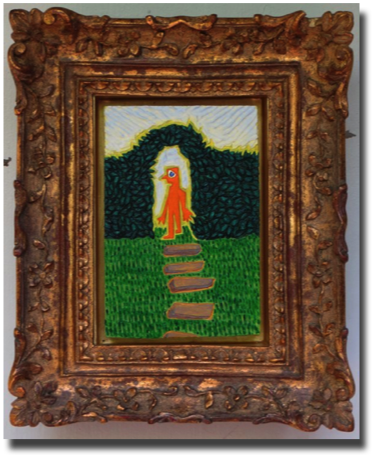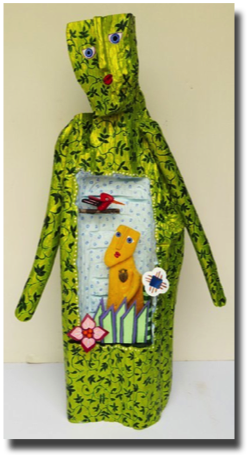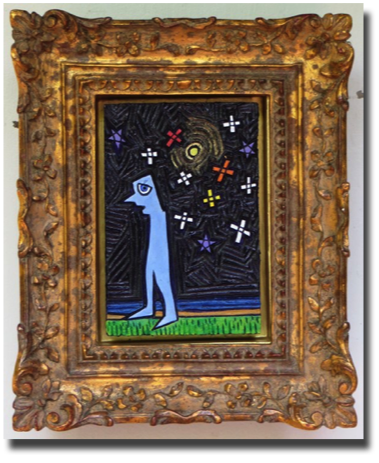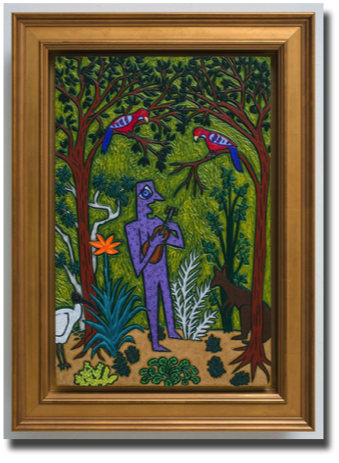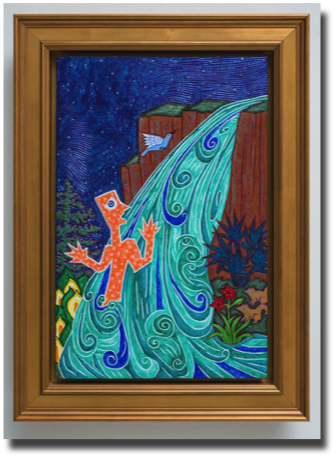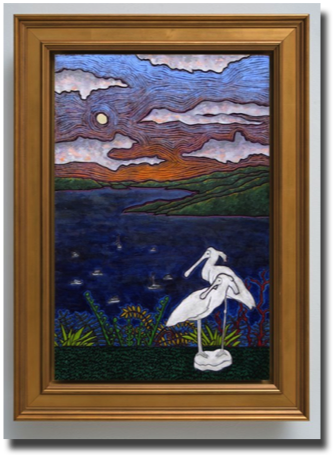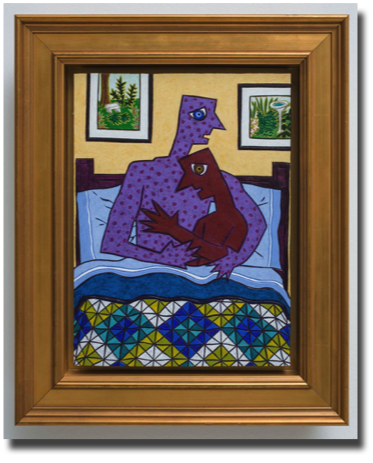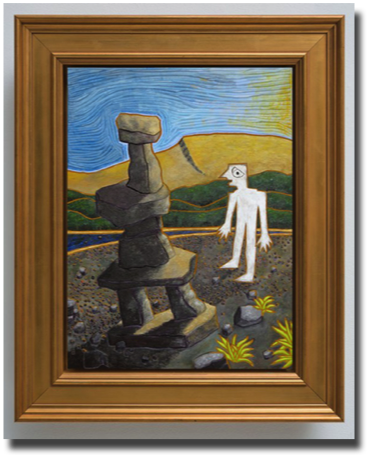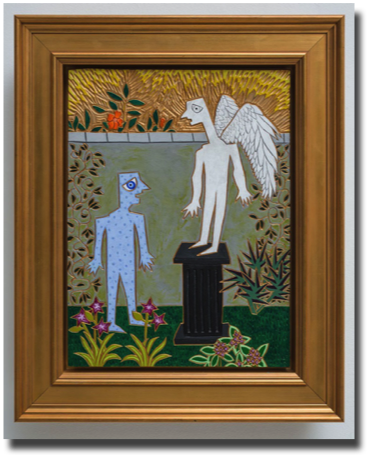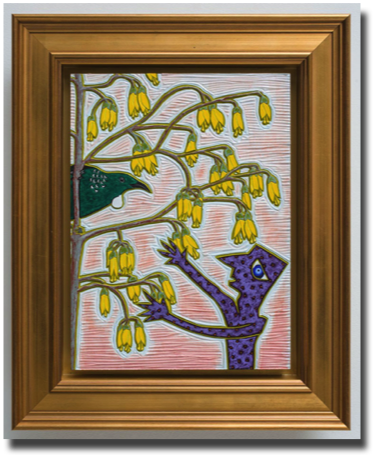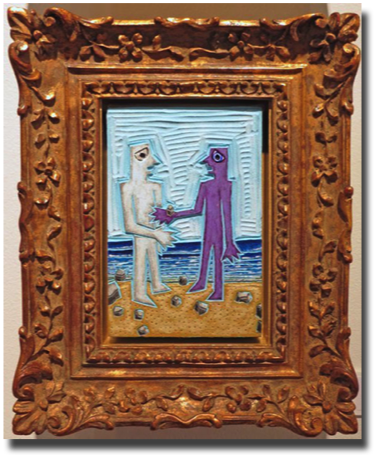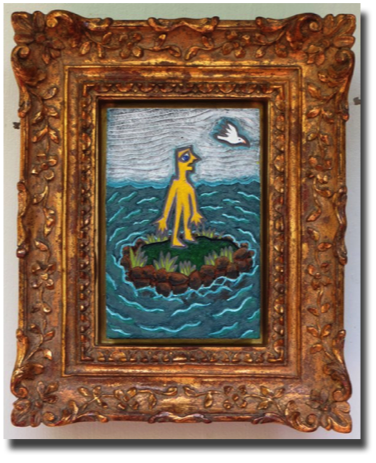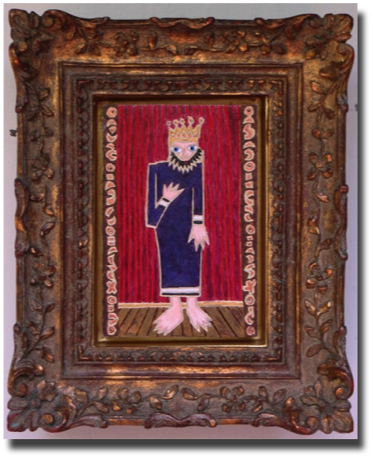Memory and Stone
July 5-31, 2016
Waterstone Gallery
Years ago a friend commented to me that I live my life in pursuit of eclectic experience. For as long as I can remember this has been true. My life and work are driven by my need to experience new things, to understand as much as I can about the world and my place in it, to learn and to live fully.
The specific works in this exhibition have arisen out of my experiences and explorations over the last few years: the tending of my own hardy-tropical garden here in Portland, a month-long stay in Paris, another in New Zealand, an artist residency in the Southern Highlands of Australia, and the continuing unfolding and flowering of my relationship with my husband.
The moments I try to capture and depict are the “small” moments of our lives: the way a certain bird flies, the first blooms in Spring, the view from a window I shared with my husband for a week in Marlborough Sound, the feeling of coming across a Royal Spoonbill or a mob of Kangaroos, the way it feels to wake up slowly on a Sunday Morning entwined with one's lover, or the poignancy of the death of a friend. Because of the ephemeral nature of all these things, I became interested in my impulse to immortalize them. In Paris I was drawn to the statuary and crypts of Pere Lachaise Cemetery. This impulse to immortalize seems to be a basic human characteristic. The irony is, of course, that even the elaborate stone crypts decay and return to earth.
You may notice some of the figures are in color representing living figures in real time, some are painted to look like stone statuary with or without pedestals, and some look ethereal. By the time I finished this body of work I thought of the light grey figures as partly statue, partly spirit, and partly some residue of me left behind in those places depicted. Likewise those places are partly inside me.
Bas relief (shallow or low relief) is a technique where an image is carved into a substrate like plaster or wood. These pieces are carved into linoleum mounted on wood. If you were to roll printmaking ink onto the upper surface of the carving, you could then transfer the ink onto paper, creating a linocut. I have chosen to paint them instead.
Keaney Rathbun
